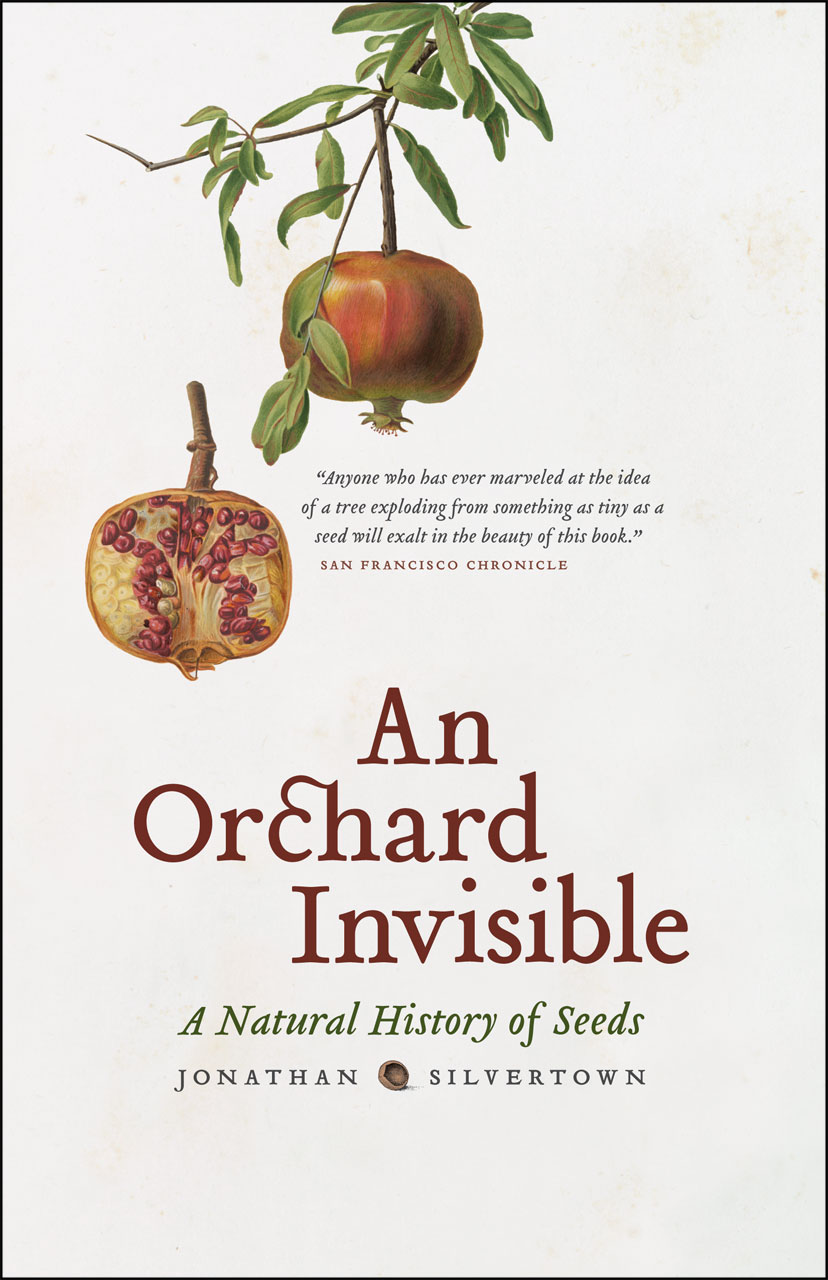The University of Chicago Press (UPC) has an outstanding catalog of publications—writers know them as the home of the Chicago Manual of Style. While many of UCP’s books are available online for purchase in digital format as eBooks the press also offers you a free eBook of their choice every month with no strings attached.
I’ve been reading their free eBooks since 2011—it’s a wonderful program from a respected institution. No tricks, no surprises, no unwanted email, just the offer of one free eBook each month.
The topics vary widely from month-to-month. April’s selection is An Orchard Invisible, A Natural history of Seeds. Simply follow this link enter your email and UPC will send you the download link.
From the University of Chicago Press:
From the tiny sesame that we sprinkle on our bagels to the forty-five-pound double coconut borne by the coco de mer tree, seeds are a perpetual reminder of the complexity and diversity of life on earth. In An Orchard Invisible, Jonathan Silvertown presents the oft-ignored seed with the natural history it deserves, one nearly as varied and surprising as the earth’s flora itself. Enjoy An Orchard Invisible: A Natural History of Seeds.
About: the University of Chicago Press:
Since its founding in 1891 as one of the three original divisions of the University of Chicago, the Press has embraced as its mission the obligation to disseminate scholarship of the highest standard and to publish serious works that promote education, foster public understanding, and enrich cultural life. Through our books and journals programs, we seek not only to advance scholarly conversation within and across traditional disciplines but, in keeping with the University of Chicago’s experimental tradition, to help define new areas of knowledge and intellectual endeavor.
In addition to publishing the results of research for communities of scholars, the Press presents innovative scholarship in ways that inform and engage general readers. We develop reference works and educational texts that draw upon and support the emphases of our scholarly programs and that extend the intellectual reach of the Press.
We publish significant non-scholarly work by writers, artists, and intellectuals from within and beyond the academy; translations of important foreign-language texts, both historical and contemporary; and books that contribute to the public’s understanding of Chicago and its region. In all of this, the Press is guided by the judgment of individual editors who work to build a broad but coherent publishing program engaged with authors and readers around the world.
